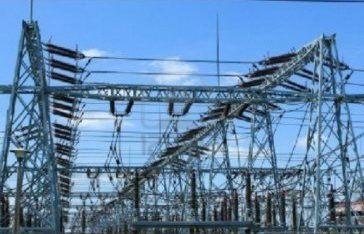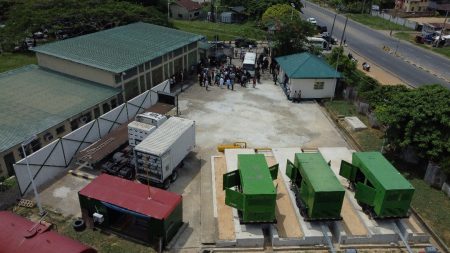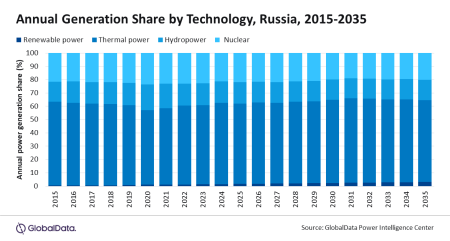28 September 2014, Sweetcrude, Washington, D.C – GE Africa (NYSE: GE) and the United States African Development Foundation, USADF, and the U.S. Agency for International Development (USAID) has announced 22 winners in the second round of their Power Africa Off-Grid Energy Challenge. Selected from nearly 300 applicants, each winner will receive a grant of up to $100,000 to support the deployment of off-grid solutions that put renewable resources to work to power increased economic activity.
The Off-Grid Challenge, funded by USADF, USAID and GE Africa, promotes innovative solutions that develop, scale-up or extend the use of proven technologies for off-grid energy – increasing access to reliable, affordable, and sustainable power. According to the International Energy Agency, only 12.9 percent of rural communities in sub-Saharan Africa have access to electricity, compared to 64.2 percent in urban areas.
 “The high quality of submissions we have received throughout the Off-Grid Energy Challenge is a testament to the incredible innovation and entrepreneurship that is happening across the continent,” said president and CEO of GE Africa, Jay Ireland. “GE has a rich history in Africa that spans more than 100 years and we are very pleased to be a part of this Challenge to help identify and accelerate projects that will help Africans to compete in the global economy.”
“The high quality of submissions we have received throughout the Off-Grid Energy Challenge is a testament to the incredible innovation and entrepreneurship that is happening across the continent,” said president and CEO of GE Africa, Jay Ireland. “GE has a rich history in Africa that spans more than 100 years and we are very pleased to be a part of this Challenge to help identify and accelerate projects that will help Africans to compete in the global economy.”
The winning projects include 14 solar developments, six biogas generation projects, one wind turbine system and a small hydroelectricity power plant. The focus of these projects is on delivering more power for commercial activities, including agriculture production and processing, off-farm businesses, and commercial enterprises.
The Off-Grid Energy Challenge is a part of Power Africa, the White House-led initiative to drive growth by increasing access to reliable, affordable, and sustainable power and by helping to ensure responsible, transparent and effective management of energy resources. The initiative aims to add more than 30,000 megawatts (MW) of cleaner, more efficient electricity generation capacity in sub-Saharan Africa as well as increase electricity access by adding 60 million new home and business connections.
Winners from Ethiopia, Ghana, Kenya, Liberia, Nigeria and Tanzania will receive grants of up $100,000 each
Renewable power projects, including wind, solar, hydro-electric and biogas, will provide 3.4 MW of new electricity to rural communities across sub-Saharan Africa
The Challenge is part of the broader Power Africa initiative, which aims to provide electricity access to 20 million households and businesses
The President and CEO of the USADF Shari Berenbach said, “We have been impressed by the broad range of innovative strategies that African entrepreneurs are developing to tackle local energy challenges.
Access to power is critical to spur economic growth and each winning project in this Challenge will help bring electricity to communities who have lived without reliable power. We have already seen significant impact in the first phase of this Challenge and we’re excited to help the next 22 winners realize their goals.”
Andy Herscowitz, USAID and Coordinator for Power Africa, said, “These 22 winners exemplify what Power Africa is all about: multiple U.S. Government agencies and other partners working together with the private sector to increase electricity access in sub-Saharan Africa. Although less than a year and a half old, Power Africa and its partners are making progress in alleviating energy poverty challenges in sub-Saharan Africa. President Obama recently announced a renewed commitment to Power Africa with additional resources so we look forward to increasing our efforts across all of sub-Saharan Africa in the months to come.”
The 22 projects announced today build on the progress and impact realized by the first round of winners, announced late last year. For the Green Village Electricity Project, a 2013 winner from Nigeria, the grant has enabled the project to grow from 140 homes to powering an entire community in Nigeria. They eventually plan to power 24 rural communities in Nigeria using their solar technology.
Ifeanyi Orajaka, founding partner of Green Village Electricity project, recently said, “The impact of this grant has been immeasurable, both to our organization and Nigeria. We have been able to expand our off-grid project to bring power to more people. And, the recognition of being a Challenge winner has attracted the attention of other potential investors.”
Winners of the 2014 Off-Grid Energy Challenge include:
Ghana
Solar Light Company will power Ghana’s mobile phone economy by prototyping and locally assembling “Sunana”, a solar powered mobile charging system designed to be used by Ghana’s informal street vendors.
The Kumasi Institute of Tropical Agriculture (KITA) is working with farmers to install a 20 kilowatt gasifier plant, to convert biomass and agricultural residue into electricity for processing of local women’s palm oil products in an off-grid town in central Ghana.
NewEnergy will deploy solar-powered water pumping and purification technology to supply clean water to over 800 inhabitants of Nabogo. The solar installation will also power drip irrigation for rural farmers in arid northern Ghana.
Nigeria
Topstep Nigeria Limited will expand the capacity of their existing solar maize mill to supply maize milling services to over 500 individuals in Kaduna, a conflict-affected region of northern Nigeria. To accomplish this, Topstep will install five processing stations near the mill; each will have three high quality milling machines powered by solar energy.
Quintas Renewable Energy Solutions Limited is developing a 500 kilowatt biomass power plant that will use an off-grid community’s agricultural and forestry residue to power 230 households and over 34 commercial and cottage industry entities in Ondo State.
Sky Resources Limited will bring off-grid electricity to a Nigerian village in Imo State by developing a small solar micro-grid, supplying electricity for up to 75 small and micro businesses.
Ginphed Nigeria Limited will construct a bio-digester to convert animal manure into biogas to be used for electricity generation that will power local farms and agro-processing centers.
Kenya
Pfoofy Power and Light Limited will develop two 10-kilowatt solar charging stations for 40 electric motorcycles, providing lower-cost transportation for goods and services in rural western Kenya
Boma Safi Limited distributes solar and energy efficient products, including solar lanterns and cook stoves. Their project will develop rural energy/distribution hubs in five Kenyan regions, strengthening the supply chain for off-grid customers.
Kitui Industries Limited has recently begun processing cottonseed oil into biodiesel. The company will supply 105 farmers with below market price bio-diesel as well as multi-purpose engines that can be used to power small-scale agricultural processing in rural eastern Kenya.
Sollatek Electronics Kenya Limited has completed a variety of solar projects across East Africa. The company will work with 15 fishing communities in rural areas of Kenya’s Indian Ocean coast to install solar centers in each area, providing access to much-needed cold storage for fish as well as solar lantern rentals.
SCODE Limited sells and finances small solar home systems and efficient cook stoves for Kenyans. The company provides loans to finance up to 85 percent of the cost of their products, and through custom metering devices customers repay the loans on a pay-as-you-go plan.
Tanzania
Space Engineering Limited is developing a hybrid solar-biomass power plant to generate 40 kW of electricity that will be distributed over a mini-grid to 592 households, two schools, one health center and nine local businesses that support maize and coffee agro businesses.
Jamii Power Limited will expand an existing 11 kW solar-based mini-grid to 33 kW, providing a pilot platform to test its innovative smart meter which pools users and allows improved grid management and reduced non-technical losses.
Lung’ali Natural Resources Company (LNRC) Ltd. is developing a small hydroelectric plant which will provide electricity to over 242 households in rural Tanzania; the grant will provide loans to households to pay for connections to the mini-grid.
L’s Solution Limited will build a 12 kW solar-powered mini-grid that will provide first time access to electricity for 120 households, 10 businesses, three health centers and four schools in a remote area of Tanzania’s Ngorogoro conservation area.
Ethiopia
Ethio Resource Group will provide electricity and light to a rural village by installing six one-kilowatt (kW) wind turbine systems to power six micro-grids. These systems will deliver power to 300 households, 20 enterprises and one health clinic in a remote area of the Amhara region.
Sun Transfer Tech PLC will sell solar home systems to 325 rural households through an energy lending scheme which will allow users to pay as they go, and empower small solar entrepreneurs to sell, install, and provide after-sales service for the systems.
Organization for Rehabilitation and Development in Amhara (ORDA) will construct 420 biogas systems that will supply gas for efficient cook stoves in Alefa district, Amhara region. The project will include training for all users on the proper operation and maintenance of biogas systems.
Liberia
Alternative Energy Inc. will install mini off-grid solar systems to power 90 households, one school and 11 shops in a community in Lofa County in the far northwest of Liberia.
Liberia Engineering and Geo-Tech Consultants Company will expand its current project to provide power by constructing a stand-alone 25 kW solar plant to serve 50 off-grid households in Bong County.
Ecovillage Community Improvement Association, Inc. will deploy a 50 kW off-grid solar power network that will power households, schools and businesses in an off-grid community outside the capital of Monrovia.
*United States Agency for International Development



